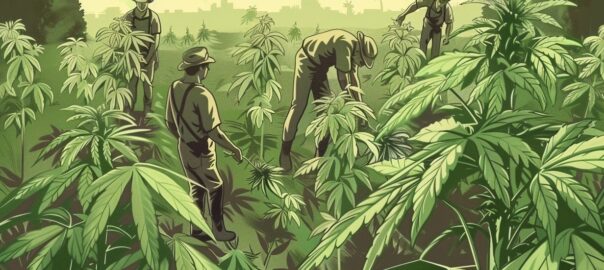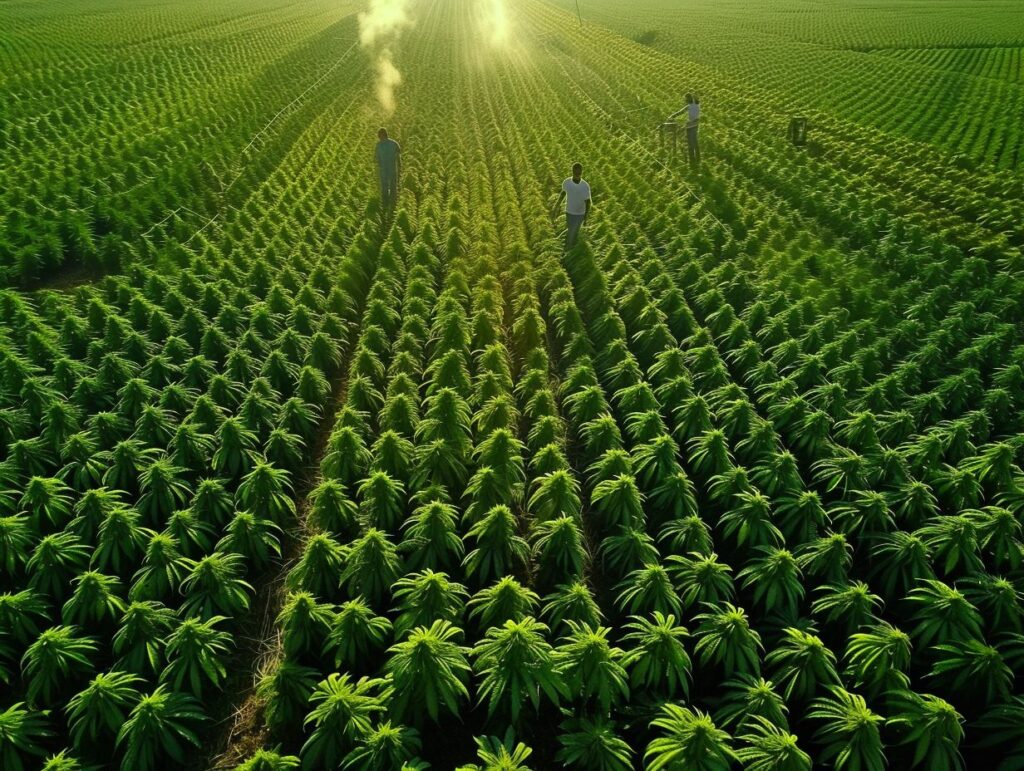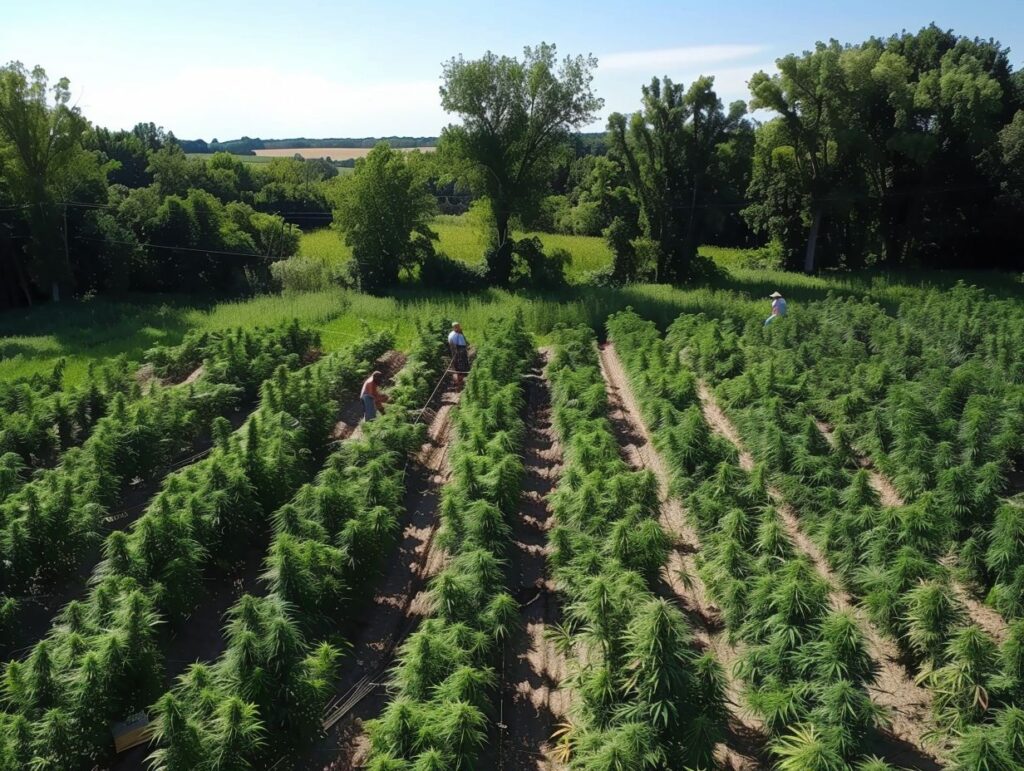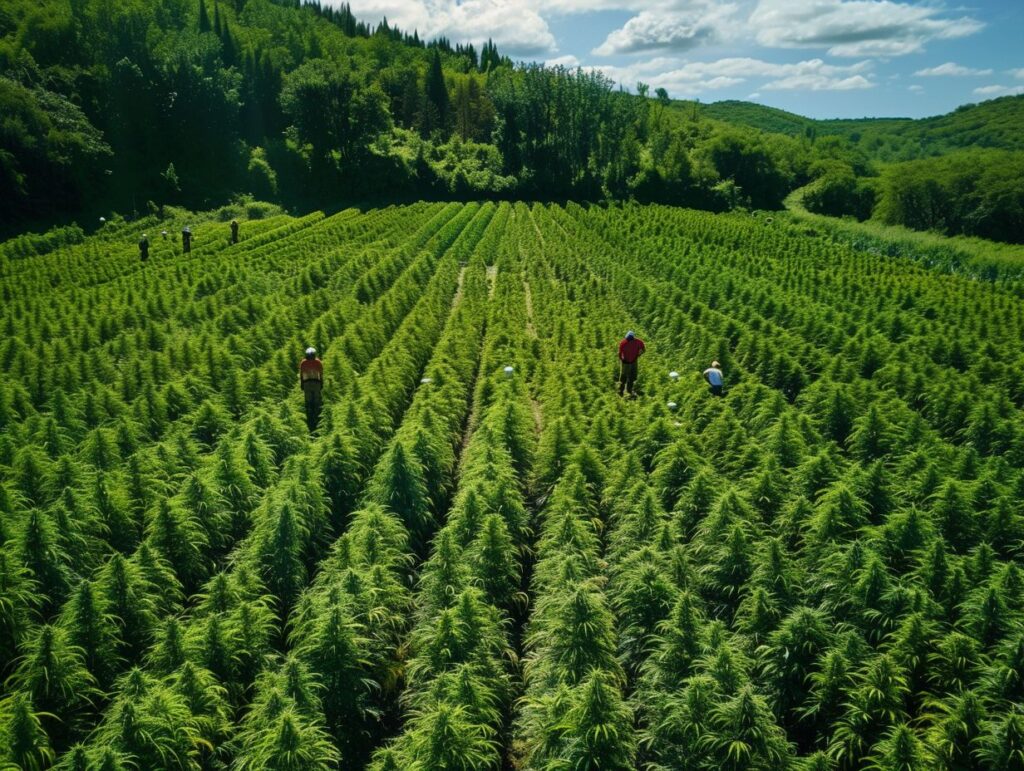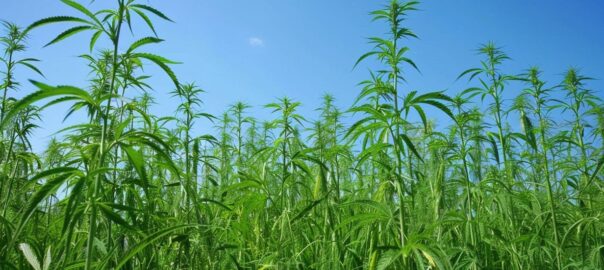Hemp farming is a practice that has gained attention for its numerous benefits, from being a sustainable crop with diverse uses to its low environmental impact. Despite these advantages, there are several challenges that hemp farmers face.
These challenges include legal stigma, misconceptions about hemp, difficulty in obtaining loans and insurance, and limited market opportunities.
In this article, we will explore these challenges and discuss ways in which hemp farmers can overcome them. We will take a look at the future of hemp farming, including changing attitudes and laws, increasing demand for sustainable products, and the potential for innovation and growth in the industry.
Join us as we delve into the world of hemp farming and its promising future.
What is Hemp Farming?
Hemp farming is the cultivation of the industrial hemp plant, primarily known for its versatile uses in various industries, including textiles, construction materials, and health products. It involves the planting, nurturing, and harvesting of hemp crops under specific agricultural guidelines and regulations to ensure sustainable practices and compliance with legal frameworks.
This process typically begins with preparing the soil to create optimal conditions for hemp growth. Farmers then choose suitable hemp cultivars based on their intended use, whether for fiber, seeds, or CBD extraction.
Throughout the cultivation period, farmers must adhere to strict regulations regarding THC levels to differentiate industrial hemp from marijuana. Sustainable farming techniques such as crop rotation, natural pest control, and minimal chemical input are often employed to protect the environment and promote soil health.
The burgeoning hemp industry continues to expand, creating opportunities for economic growth and innovation in sustainable agriculture.
What are the Benefits of Hemp Farming?
Hemp farming offers a multitude of benefits ranging from environmental sustainability to economic opportunities. The cultivation of hemp promotes sustainable agricultural practices, reduces the environmental impact through carbon sequestration, and provides a source of raw material for a wide range of hemp-derived products that contribute to health and wellness.
The versatility of hemp products extends beyond health benefits. Hemp fibers can be used in textiles, construction materials, and biofuels, presenting a sustainable alternative to traditional resources. The economic opportunities within the hemp industry are extensive, with potential for job creation, investment growth, and overall economic prosperity. By embracing hemp farming, society can harness its potential for both personal wellness and environmental conservation, paving the way for a greener and more sustainable future.
Sustainable Crop
Hemp stands out as a sustainable crop due to its ability to grow rapidly without the need for pesticides, herbicides, or excessive water. The cultivation of hemp aligns with sustainable agriculture practices and offers a renewable source of raw material for various industries.
Hemp farming plays a crucial role in maintaining soil health and biodiversity by reducing the need for harmful chemicals that can degrade the ecosystem. The extensive root system of hemp plants helps prevent soil erosion and promotes soil structure, enhancing its long-term fertility. Hemp requires minimal acreage to cultivate, making efficient use of land while producing high yields. By embracing hemp cultivation, farmers can contribute to sustainable land management practices and reduce the ecological footprint of agriculture.
Diverse Uses
One of the remarkable aspects of hemp farming is the diverse range of applications for the harvested plant. Industrial hemp finds use in manufacturing textiles, paper, biodegradable plastics, and even biofuels, showcasing its versatility and industrial importance.
In textile production, hemp fibers are known for their durability and breathability, making them ideal for creating eco-friendly and long-lasting fabrics. Hemp-based materials are being embraced for their biodegradability, offering a sustainable alternative to traditional plastics.
Beyond textiles, industrial hemp is also utilized in construction materials like hempcrete, a mixture of hemp fibers, lime, and water, known for its excellent insulation properties. The diverse applications of industrial hemp highlight its potential to revolutionize various industries with environmentally friendly and innovative products.
Low Environmental Impact
Hemp farming is known for its low environmental impact as the plant naturally replenishes nutrients in the soil, requires minimal water, and can be grown without the need for synthetic chemicals. These sustainability efforts make hemp cultivation a favorable choice for eco-conscious practices.
Hemp farming plays a crucial role in carbon sequestration, absorbing large amounts of CO2 during its growth. This process helps combat climate change and reduce greenhouse gas emissions. In addition, hemp roots have a deep-reaching system that helps prevent soil erosion and improve soil structure. By promoting biodiversity and reducing the need for harmful pesticides, hemp cultivation contributes positively to the overall health of the ecosystem.
What are the Challenges of Hemp Farming?
Despite its numerous benefits, hemp farming faces significant challenges stemming from the legal stigma surrounding the plant, prevalent misconceptions about hemp, regulatory hurdles, and the complex landscape of the hemp industry. These obstacles hinder the full realization of hemp’s potential in various sectors.
Many of the challenges in hemp farming can be traced back to the long-held misconceptions about the plant. The negative associations with cannabis have created legal roadblocks for hemp cultivation, despite its low THC levels. Navigating the intricate web of industry regulations can be daunting for farmers seeking to enter the market. This regulatory compliance not only adds complexity to operations but also increases the cost of doing business. Overcoming these challenges requires a concerted effort to educate the public, advocate for legalization, and streamline industry guidelines to foster the growth of the hemp industry.
Legal Stigma
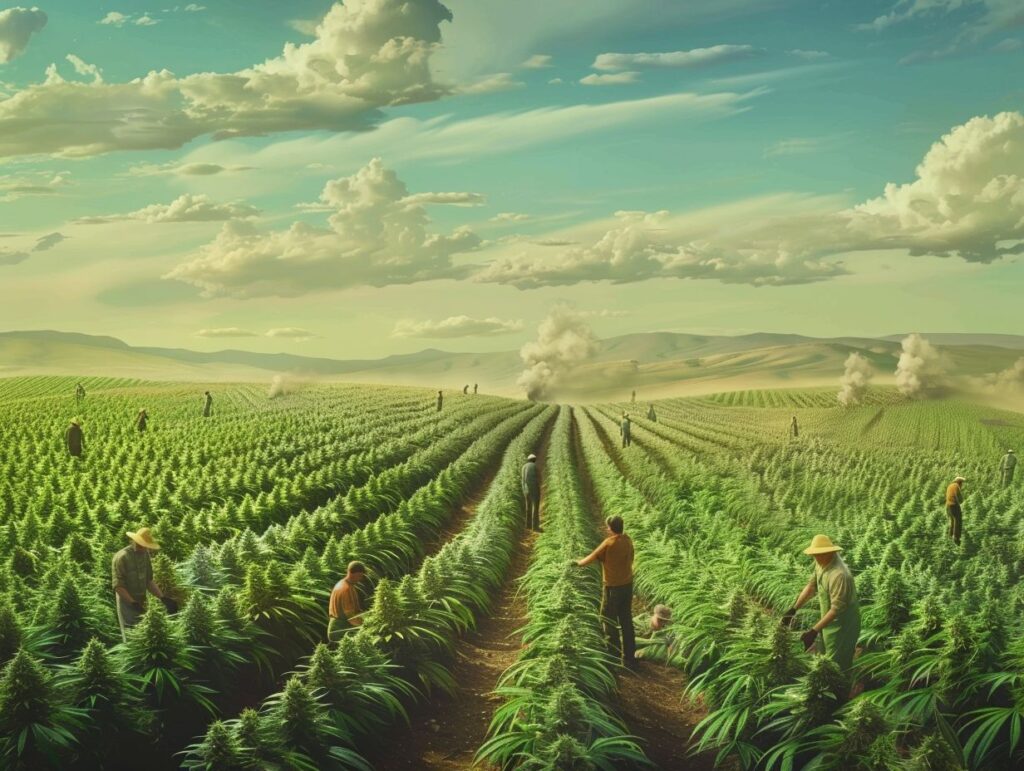
The legal stigma surrounding hemp farming arises from historical associations with psychoactive cannabis varieties, leading to regulatory challenges and policy restrictions.
These misconceptions often result in stringent regulations that hinder the growth of the industrial hemp industry. To combat this issue, it is crucial for policymakers to recognize the distinct differences between hemp and marijuana, and to implement legislation that reflects this understanding. By reforming outdated laws and promoting education about the benefits of hemp farming, a more supportive legal environment can be established. This shift towards a progressive legal framework is essential for unlocking the full potential of hemp cultivation and reshaping public perception.
Misconceptions about Hemp
Misconceptions about hemp, including its association with drug culture and confusion between hemp and marijuana, persist in public perception. Dispelling these misunderstandings requires targeted education, scientific research showcasing the differences between hemp and psychoactive cannabis, and a shift in public perception towards recognizing hemp’s true value.
While hemp and marijuana both belong to the Cannabis sativa plant species, they differ significantly in their chemical composition and uses. Hemp contains minimal levels of THC, the psychoactive compound that gives marijuana its intoxicating effects, making it unsuitable for recreational purposes.
Public education plays a crucial role in clarifying these distinctions and highlighting the numerous eco-friendly and industrial benefits of hemp cultivation. By addressing these misconceptions through research-based information, we can foster a more informed and positive stance on hemp farming in society.
Difficulty in Obtaining Loans and Insurance
One of the practical challenges faced by hemp farmers is the difficulty in securing loans and insurance due to regulatory uncertainties and market volatility. This financial barrier affects the profitability and economic impact of hemp farming, limiting market opportunities and hindering industry growth.
The lack of access to traditional financial institutions and support mechanisms for hemp growers exacerbates the economic challenges. Without proper financial backing, farmers struggle to invest in crucial aspects such as infrastructure, technology, and high-quality seeds, further compromising the overall sustainability and success of their operations.
Addressing these financial constraints through tailored financial support programs and clear regulatory frameworks is essential to unlock the full economic potential of hemp farming and foster its integration into mainstream agricultural practices.
Limited Market Opportunities
The limited market opportunities for hemp products, especially CBD-based derivatives, stem from consumer demand fluctuations, regulatory constraints, and competitive market dynamics. Diversifying hemp products and exploring niche markets can help address the challenge of limited market penetration.
By understanding evolving market trends and consumer preferences, hemp farmers can strategically position themselves to meet the changing demands of the industry. Engaging with consumers to gather insights on their preferences and shopping habits can provide valuable information for developing new product lines and enhancing existing offerings. Leveraging innovative cultivation and processing techniques can create unique hemp products that cater to specific market niches, allowing farmers to differentiate themselves in a crowded marketplace. Through a combination of market research, product development, and strategic marketing, hemp farmers can overcome market challenges and thrive in a competitive industry landscape.
How Can Hemp Farmers Overcome These Challenges?
To surmount the challenges in hemp farming, farmers must prioritize education and advocacy efforts to dispel misconceptions, engage in collaborative research initiatives to drive innovation, adopt effective marketing strategies to promote hemp products, and establish partnerships with governmental bodies for supportive policies.
Educational programs can equip farmers with the latest scientific knowledge and best practices, empowering them to make informed decisions. By staying current on research findings, farmers can implement innovative techniques that enhance crop yield and quality.
Leveraging digital platforms for marketing can expand the reach of hemp products to a wider audience, while strategic partnerships with industry stakeholders can open doors to new market opportunities and ensure sustainable growth in the sector.
Education and Advocacy
Educational campaigns and advocacy initiatives play a crucial role in addressing misconceptions about hemp farming, enhancing public education, and raising consumer awareness about the benefits of hemp-derived products. By actively engaging in educational efforts, hemp farmers can contribute to changing public perceptions and fostering acceptance of hemp cultivation.
Through targeted public education efforts, misconceptions surrounding hemp production and consumption can be dispelled. By highlighting the sustainable qualities of hemp cultivation, consumers can become more informed about the environmental benefits of using hemp products. This increased consumer awareness can lead to a shift in market demand towards more sustainable and eco-friendly options. Advocacy plays a key role in influencing policy decisions and creating a supportive environment for the hemp industry to thrive, benefiting both producers and consumers alike.
Collaborating with Other Farmers
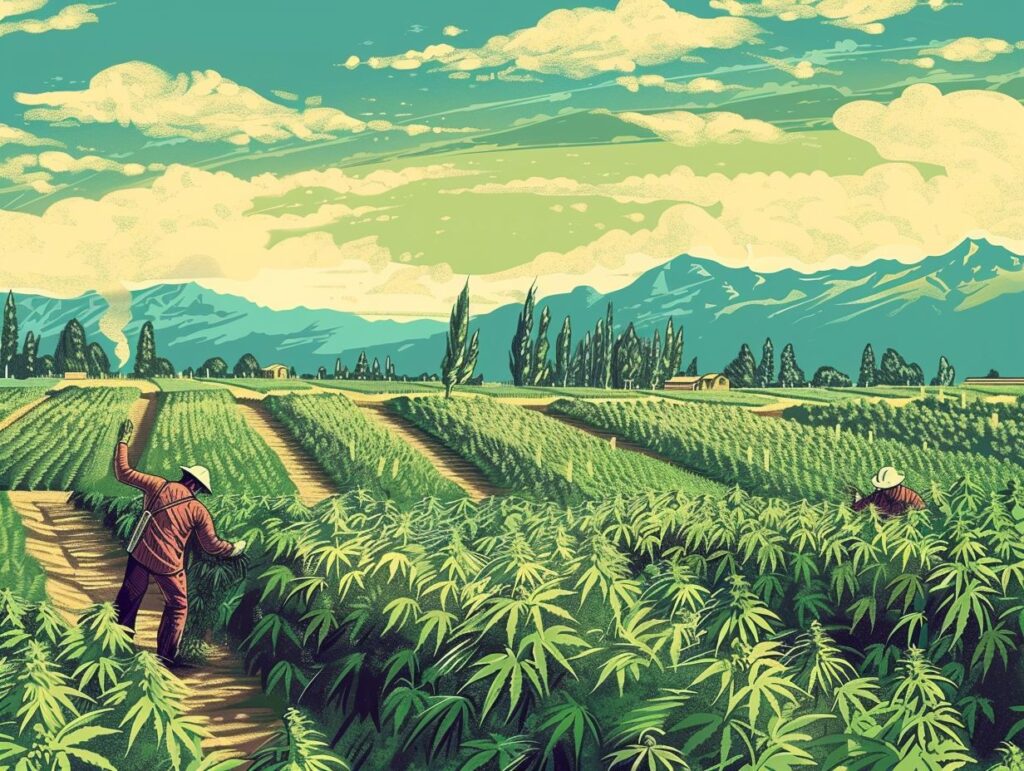
Collaborating with other farmers, sharing best practices in hemp cultivation techniques, and ensuring regulatory compliance collectively benefit the hemp farming community.
This collaborative approach allows farmers to leverage the diverse expertise within the industry, leading to innovative methods and improved crop quality. By exchanging knowledge on sustainable farming practices, such as organic pest control or soil management, farmers can enhance their yields while reducing environmental impact. Collective efforts in regulatory compliance streamline processes, ensuring that all participants meet industry standards and contribute to the overall legitimacy and growth of the hemp sector.
Diversifying Hemp Products
Diversifying hemp products beyond traditional offerings such as CBD oil opens up new market opportunities and caters to evolving consumer demands. By exploring innovative uses and applications for hemp-based products, farmers can expand their market reach and capitalize on the growing demand for sustainable alternatives.
Incorporating novel hemp-based offerings can introduce a fresh dimension to the market, attracting a wider demographic who seek unique and versatile products. Apart from CBD oil variants, diverse hemp products like textiles, building materials, and even biofuels present lucrative opportunities for farmers and entrepreneurs to diversify their revenue streams.
Embracing these emerging market trends not only boosts profitability but also strengthens the sustainability of the hemp industry, paving the way for long-term growth and success.
Working with Local and State Governments
Collaborating with local and state governments to advocate for policy changes, support hemp research initiatives, and streamline hemp industry regulations is essential for creating a conducive environment for sustainable hemp farming. By actively participating in policy discussions, hemp farmers can influence regulatory frameworks and drive positive industry developments.
This engagement with governmental bodies also allows for the sharing of knowledge and best practices, fostering innovation and ensuring that regulations are well-informed and practical for the hemp industry. By working closely with policymakers, stakeholders can address challenges faced by hemp farmers, such as access to banking services and fair market opportunities, leading to a more resilient and competitive hemp sector. This collaborative approach not only benefits the industry but also contributes to the overall growth and legitimacy of the hemp market.
What is the Future of Hemp Farming?
The future of hemp farming holds promise for significant industry growth driven by a perceptual shift towards recognizing hemp’s value, ongoing innovations in cultivation techniques and product development, and the realization of the plant’s vast market potential. As perceptions evolve, so do opportunities for economic viability and sustainability in the hemp industry.
Innovative methods such as precision agriculture and genetic modification are enhancing hemp cultivation efficiency and yield. This, coupled with technological advancements in processing and extracting cannabinoids, opens up new avenues for product diversification and market expansion. As more consumers embrace hemp for its environmental benefits and health wellness properties, the industry is poised for exponential growth in the coming years. This shift in public perception towards hemp as a versatile and sustainable crop is paving the way for a thriving market ecosystem and reinforcing the economic viability of hemp farming.
Changing Attitudes and Laws
The future of hemp farming hinges on changing societal attitudes towards cannabis and enacting progressive laws that support the growth of the hemp industry. As public perception improves and policies evolve to favor hemp cultivation, the industry is poised for substantial growth and positive development.
Perception shifts play a critical role in shaping public discourse around hemp, moving it away from stigmatization towards recognition as a valuable agricultural resource. With more individuals acknowledging the benefits of hemp, from sustainability to diverse applications like textiles and CBD products, the demand for hemp cultivation is set to surge. Legislative changes, such as legalizing hemp production and incentivizing farmers to embrace this crop, are pivotal in creating a conducive environment for industry expansion and innovation.
Increasing Demand for Sustainable Products
The future of hemp farming is closely tied to the rising demand for sustainable products and environmentally friendly alternatives across various industries.
Capturing the market growth potential and seizing opportunities for industry development are crucial for hemp farmers looking to thrive in the evolving landscape of sustainable agriculture. By adopting innovative techniques and sustainable practices, such as regenerative farming and organic cultivation methods, hemp farmers can not only cater to the increasing demand for eco-friendly products but also contribute to the larger goal of sustainable development.
As consumer preferences continue to shift towards sustainable choices, the potential for growth in sustainable hemp practices is vast, paving the way for a thriving and environmentally conscious industry.
Potential for Innovation and Growth
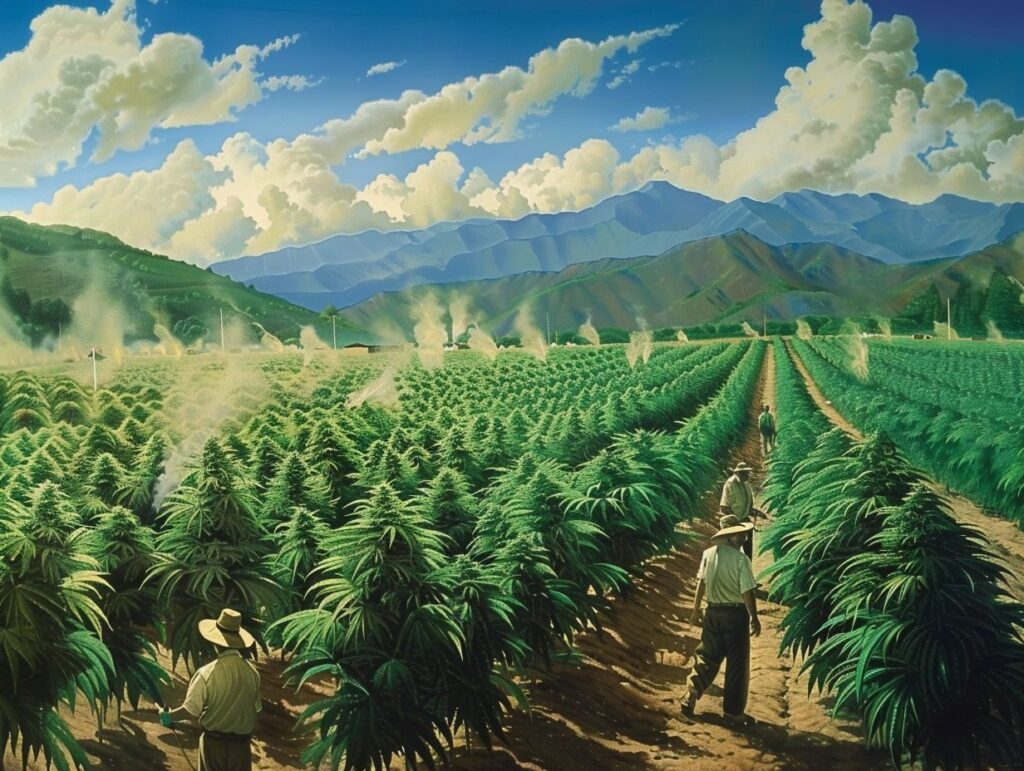
The future of hemp farming holds immense potential for innovation in cultivation practices, product development, and market expansion. By setting industry standards, embracing advancements in hemp technologies, and driving market expansion efforts, hemp farmers can spearhead growth and advancements within the hemp industry.
This wave of innovation in hemp farming is not only transforming traditional practices but also opening up new doors for market expansion and increased consumer demand.
As industry advancements continue to drive progress, there is a growing recognition of the potential for sustainable growth within the hemp sector.
By integrating innovative practices and leveraging technological advancements, hemp farmers are paving the way for a more robust and dynamic industry landscape.
The shift towards embracing innovation is positioning hemp farming as a key player in the agricultural sector’s future.”
Frequently Asked Questions
What are some common misconceptions surrounding hemp farming?
Some common misconceptions surrounding hemp farming include the belief that hemp is the same as marijuana, that it has psychoactive effects, and that it is illegal to grow.
How does the stigma surrounding hemp farming affect the industry?
The stigma surrounding hemp farming can negatively impact the industry by creating barriers to entry, limiting market demand, and hindering research and development.
Is it legal to grow hemp in all states?
No, while the 2018 Farm Bill legalized hemp production at the federal level, individual states have different laws and regulations surrounding the cultivation of hemp. It is important for farmers to research and understand their state’s laws before beginning hemp farming.
How can hemp farmers combat the stigma and misconceptions surrounding their crop?
Hemp farmers can combat stigma and misconceptions by educating the public about the differences between hemp and marijuana, as well as the many benefits of hemp farming. Providing transparent information and participating in community outreach can also help to break down negative perceptions.
Are there any challenges specific to the stigma surrounding hemp farming for female farmers?
Yes, female hemp farmers may face added challenges due to gender stereotypes and discrimination in the agriculture industry. This can further perpetuate the stigma surrounding hemp farming and hinder the success of female farmers.
What resources are available for hemp farmers facing challenges related to stigma and misconceptions?
There are various resources available, such as advocacy groups, government agencies, and educational programs, that can provide support and information for hemp farmers facing challenges related to stigma and misconceptions. It is important for farmers to seek out these resources and connect with other farmers in the industry for support.
